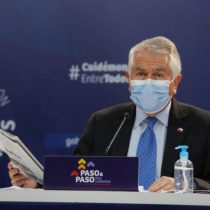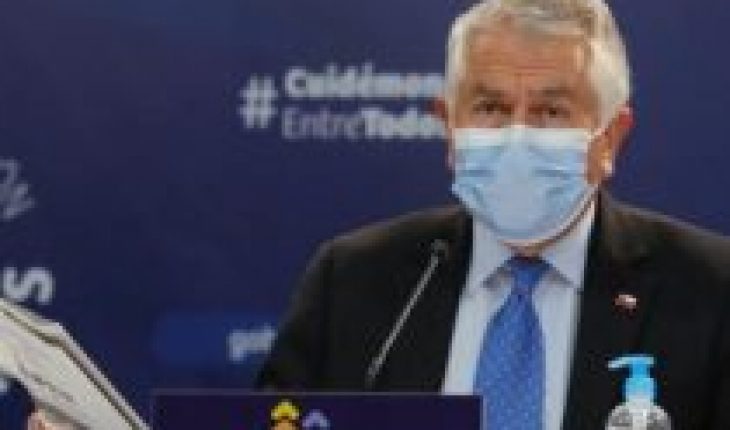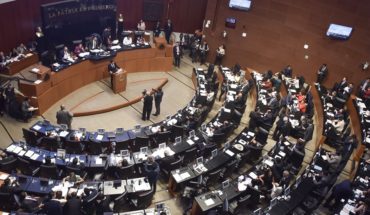
Health Minister Enrique Paris on Sunday led a new televised balance of the Covid-19 pandemic in the country. The head of The Minsal, who was questioned this week in his management, departed the report on coronavirus highlighting an increase in the detection of those patients who are asymptomatic thanks to the “active search” of cases.
“There is no traceability system that can encompass everything that needs to be traced. We have realized that, even though the progress has been enormous. But here we must highlight a very important fact. Currently we detect by active search for cases more than 30% of patients and in the Metropolitan Region 32% of those patients are asymptomatic,” he argued.
“So when we are asked to detect the patient when it starts with symptoms, and 32% at the metropolitan level and 30% nationally are asymptomatic, it’s really hard to identify,” he added.
“That’s why we have to rely on chain polymerase reaction examination – when it’s positive – to begin traceability. Obviously we will try to make efforts also with regard to symptomatic patients, without a doubt,” he said.
Paris acknowledged some difficulties in traceability but commented that a new record for PCR exams (with 31,981) was now reached and stressed that the positivity rate is now 6.4%. “We are getting very close to the percentage recommended by WHO,” Dr Paris said, however, he expressed particular concern about mobility and rising contagion in regions such as Uble, Bío Bío, La Araucanía and Magallanes. Contagions continue and the latter is the region most affected in all of Chile by the progress of the pandemic.
“It was the region that achieved the best rates and today it is with the worst figures in the country,” Minister Enrique Paris said in reference to the Magellan Region. The holder of the Health portfolio made an explicit appeal to the authorities and the inhabitants of Punta Arenas because it is in that commune where “the situation is most critical”.
As noted by the Minsal, Magallanes has a rate of 343 per 100 thousand inhabitants, the highest in Chile, held Paris, surpassing the rates of Arica, Tarapacá and Atacama.
“It is incomprehensible that this will occur (the rise) because it results in a lack of concern from the community. But I call on the authorities in the region to coordinate as fully as possible to lower this rate,” Minister Paris said, stressing that Magellan yesterday reported 80 new cases and today there were 115 people infected.
“I call on the health authority, which is up to us, to do its work fully,” Paris told, also calling on the city’s inhabitants “because they must respect health standards such as mask and curfew.”
“Even God willing, we’re not going to have a very large number of patients in the hospital ICU again, and maybe I hope not, a collapse,” the Health portfolio holder concluded, reiterating that “there is a responsibility of the inhabitants and the authorities.”
The Undersecretary of Care Networks, Arturo Zúñiga, was in charge of delivering the numbers and indicated that in the last 24 hours there were 1,942 new cases: 1,315 with symptoms, 554 asymptomatic and 73 without notification.
The total contagion, today, reached 397,665 and of these 15,634 remain active.
Recovered patients total 371,179 people, health authority said.
It also reported that 1,027 patients are admitted to intensive care units, with 742 of them connected to mechanical ventilator, of which 149 remain critically ill. Fans are available at 577.
In addition, he noted that yesterday the record number of 31,981 PCR exams was carried out (with a positivity of 6.07%) for a cumulative of 2,204,009. Finally, it indicated that there are 10,392 quotas with 5,258 users in 156 health homes across the country.





